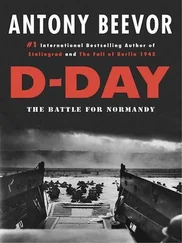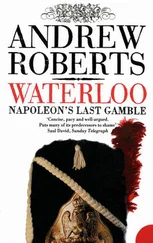When Napoleon was informed by General Drouot, Adjutant-General of the Imperial Guard, that the artillery needed firmer ground before it could be properly deployed, he made his next major error. Since he had no idea that the Prussians were back on the offensive, and were even then marching towards him from Wavre, he believed that time was on his side, rather than its being a precious but fast-diminishing commodity.
So when at the breakfast conference Jérôme Bonaparte had said that the waiter serving him the previous day had overheard Wellington saying that the Prussians would arrive in front of the Forest of Soignes, Napoleon merely scoffed at his youngest brother, dismissing the information out of hand. Shakespeare would easily have recognised the role that hubris and arrogance played in Napoleon’s downfall.
To haul a twelve-pounder cannon — so called because of the weight of shot it fired, nearly a stone of lead per round — up a slope, in mud, was no mean undertaking; and Napoleon’s Grand Battery at Waterloo constituted sixty guns and twenty howitzers. Yet the demands of Drouot and the artillery experts that the ground be allowed to dry first — which sounded only sensible to someone who had learnt his military trade as a gunner — meant that Napoleon squandered his chance for an early assault on the Anglo-Allied army before the Prussians arrived on the scene.
The late start was not entirely the Emperor’s fault. His army took far longer to assemble than was originally envisaged, coming up from their sodden sleeping areas and bivouacs sometimes miles from the battlefield. Many troops had been dispersed to forage for food and shelter in the downpour, and the mud delayed the forming up of units on the battlefield. Of course, had Napoleon had an inkling of the proximity of the Prussians, none of this would have been allowed to preclude a dawn attack.
Another effect of the heavy rainfall of the night of 17–18 June that worked against Napoleon was the way that it softened the ground, to the extent that cannonballs tended to plough into the mud, rather than bounce along hardened ground. A cannonball fired at sun-baked ground might bounce as many as five or six times, leaving death and carnage in its wake, while one that merely buried itself after its initial impact had only a fraction of that lethal capacity. Tests undertaken by the Royal Artillery in 2003 proved how diminished were Napoleon’s batteries’ effectiveness by the downpour the night before the battle.
While Napoleon could hardly have ordained good weather, he did make serious blunders of his own for which he must take ultimate blame. Instead of ordering Grouchy to return to the scene as soon as possible, at 10 a.m. on 17 June Napoleon had sent him orders to march on Wavre and engage the Prussians, orders which could only have the effect of forcing them closer towards junction with Wellington. Several of Napoleon’s written orders during the campaign were unclear or contradictory — his handwriting was, moreover, akin to the meanderings of an intoxicated spider — but these instructions were particularly strategically inept.
At only three miles wide by one and a half deep, Waterloo was a very small battlefield by Napoleonic standards, especially for a total of over 180,000 men to fight in. Napoleon’s tactical options were therefore severely limited, since Wellington had effectively closed down large areas of the battlefield to him. The huge flanking movements that Napoleon often favoured were effectively blocked off, to the east by the well-defended farm buildings of the hamlets of Papelotte, La Haye and Frischermont and to the west by the village of Braine l’Alleud. Napoleon therefore decided upon a frontal assault with a couple of mild diversions, which was hardly an inspired tactic, but was perhaps all that was open to him given the terrain.
Since the horrifically expensive battle of Borodino outside Moscow in 1812 Napoleon had inured himself to the terrible losses inherent in frontal assaults, and the French death toll at Waterloo showed that he had not altered his thinking during his brief exile on Elba. Put at its most basic, his plan was simply to break the enemy’s centre, gain possession of the slopes of Mont St Jean and thus split Wellington’s army in half while controlling the all-important road to Brussels. He reckoned without the steadiness under attack of the British infantry that Wellington had largely deployed in the centre, perhaps because he had never personally fought against the British since he captured Toulon from the Royal Navy nearly two decades previously.
Napoleon’s supposed ill-health has frequently been used by historians — more often than not, French historians — to explain away the Emperor’s comparative lack of imagination in his plan for the battle. He has been diagnosed (by historians rather than by contemporary doctors) as suffering from a disease called acromegaly, a disorder of the pituitary gland, which induces a combination of torpor and over-confidence. 4Inflammation of the bladder and urinary tract has also been attributed to him, and he certainly had suffered from it in the past, but he had been in generally good health — though overweight — on Elba. According to his brother Jérôme and his surgeon Baron Larrey, Napoleon suffered from haemorrhoids the night after Ligny, which Larrey and the Emperor’s valet Louis Marchand attended to with warm, clean, wet flannels. They were obviously successful in this, because the Emperor spent several hours in the saddle on 17 and 18 June, something that would have been quite impossible otherwise.
He was certainly in the saddle when at about 9 a.m., in order to enthuse his men and perhaps to try to intimidate the enemy, as well as to kill time while the ground hardened, Napoleon rode along the whole of the front line. It also allowed him to inspect the enemy’s position for the third time since midnight. The bands played, the soldiers cried ‘ Vive l’Empereur!’, and the spectacle was undoubtedly an imposing one as the Man of Destiny, as he occasionally referred to himself, showed himself to his troops and they to him.
It is a curious fact about the battle of Waterloo that no one is absolutely certain when it actually began. Historians dispute the exact timing, because the men whose lives were at stake did not bother to synchronise or check their watches for our benefit, having more pressing things to do. No historian denies, however, that the first phase began with a massive bombardment from the Grand Battery and an attack by General Reille’s corps upon Hougoumont.*
Just as the Grand Battery was opening up, at around 11.30 a.m., a corporal from the 2nd Silesian Hussars, a Prussian cavalry regiment, was captured in the Bois de Paris by French cavalry. He quickly divulged the vital information that his unit was merely the advance guard for Blücher’s army, which was making its way towards the battlefield. Nor was this the first indication that the French had of what was afoot: as early as 9.30 a.m. the Prussian Graf von Schwerin had been killed by a shot from a French horse artillery battery.
Eleven-thirty in the morning was thus the point at which Napoleon, who had scarcely by then even initiated it, ought to have broken off the engagement and retreated to fight on ground of his own rather than Wellington’s choosing. Perhaps considering the information might be faulty, or that he would have plenty of time later to review his options, or most likely in the belief that he could defeat Wellington before Blücher arrived, Napoleon decided to press on with the attack on Hougoumont. (Many of the most sophisticated of the modern war-gaming techniques played on the battle regularly demonstrate that it was nigh-impossible for Napoleon to have won Waterloo without first capturing Hougoumont, because its continued possession by Wellington stymies the French ‘player’ from executing any imaginative moves against the Anglo-Allied right or centre-right.)
Читать дальше
Конец ознакомительного отрывка
Купить книгу











